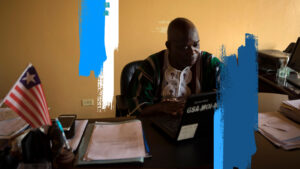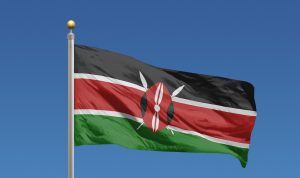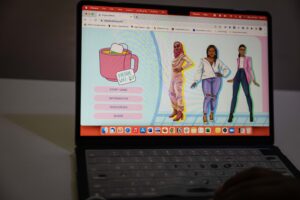From Visions To Action: The Framing Of Inclusive Digital Governance In Kenya Through Open Government
As we prepare to celebrate #OpenGovWeek from May 27 to 31, 2024, we must recognise the progress made by several member countries in digital governanceAs evolving technologies present new opportunities for governments and citizens to advance openness and accountability, OGP participating governments are working to create policies that deal with the ... More. Kenya is marking the occasion this year by including a digital governance commitmentOGP commitments are promises for reform co-created by governments and civil society and submitted as part of an action plan. Commitments typically include a description of the problem, concrete action... as a key priority area in its latest OGP action planAction plans are at the core of a government’s participation in OGP. They are the product of a co-creation process in which government and civil society jointly develop commitments to open governmen.... In Kenya, inclusive digital governance is essential for promoting government transparencyAccording to OGP’s Articles of Governance, transparency occurs when “government-held information (including on activities and decisions) is open, comprehensive, timely, freely available to the pub... More, accountability, and citizen engagement. With technology advancing rapidly, ensuring everyone has equal access to digital services and opportunities is crucial. Closing the digital divide is essential to ensure no one is left behind, especially vulnerable groups.
Pollicy, a feminist civic technology collective, is conducting action research in collaboration with OGP and the International Development Research Centre (IDRC) to improve genderOGP participating governments are bringing gender perspectives to popular policy areas, ensuring diversity in participatory processes, and specifically targeting gender gaps in policies to address gov... More data integration in digital governance ecosystems. By leveraging their expertise in gender, data, and technology, Pollicy aims to develop models for cross-regional learning and peer exchange between OGP members, starting with Kenya. Through evidence gathering, active engagement with other OGP members, and the development of feminist perspectives on digital governance, this project will culminate in creating a toolkit designed to guide reformers in integrating gender data into their digital governance work and promoting gender-inclusive open government commitments.
One of the main policy problems identified under the digital governance commitment is citizens’ inequitable access to digital opportunities and services and the lack of employment of gender data to drive positive change. A policy approach that lacks a strong focus on inclusionOGP participating governments are working to create governments that truly serve all people. Commitments in this area may address persons with disabilities, women and girls, lesbian, gay, bisexual, tr... More and limited capacities in understanding and implementing digital technologies hinders progress in addressing the digital divide. A collaborative approach involving government actors, civil society organisations, the private sectorGovernments are working to open private sector practices as well — including through beneficial ownership transparency, open contracting, and regulating environmental standards. Technical specificat... More, and other stakeholders is essential to tackle these challenges.
The project will employ the three research strategies to empower reformers to create a more inclusive and transparent digital governance ecosystem:
Mapping the landscape for inclusive digital governance through collaboration. Pollicy and OGP intend to document the state of play regarding inclusive digital governance and algorithmic transparency in Kenya, showing gaps and opportunities. Ultimately, through collaboration, they will put forward recommendations towards achieving this commitment, particularly through the development of a standard toolkit meant to guide reformers working on digital governance with gender data integration. Following the development of the toolkit, training and peer-to-peer exchanges will be conducted as validation and knowledge-sharing points of the toolkit as it gets rolled out.
Creating models for cross-regional learning and peer exchange between OGP members, starting with Kenya, this work shall be co-created and disseminated specifically through a standardised toolkit meant to guide in an actionable way with improved gender data collection and integration in OGP members.
Unveiling digital governance disparities. With the project’s focus on digital governance and algorithmic transparency and accountability, Pollicy brings its proficiency from years of researching the intersection of gender, data and technology using an inclusion lens. Based on the findings, the study Pollicy introduces six pillars of inclusive data governance:
- Contextual understanding of data ecosystems: Adopt a holistic view of data ecosystems accounting for diverse actors, networks, and flows of data tailored to the African context.
- Ethical and inclusive data practices: Ensure ethical data practices, including informed consent, privacy preservation, and inclusivity of marginalised populations.
- Addressing power asymmetry: Recognize and counteract power imbalances in data ecosystems caused by colonial legacies, neocolonialism, and unequal resource distributions.
- Building capacity and literacy: Develop data literacy programs targeting various stakeholders, including policymakers, civil society organisations, and the public.
- Encouraging participatory governance: Foster social dialogues, enabling diverse stakeholders to engage in data governance decisions.
- Strengthening institutional frameworks: Implement comprehensive data protection regulations and strengthen enforcement mechanisms to promote accountability and transparency.
Specifically for this project, it brings into focus through intersectionality the diversities of marginalised groups, including women, as societies increasingly move into the digital realms, thereby making visible how this realm contributes to maintaining and, in some cases, worsening the status quo on issues such as work, educationAccountability within the public education system is key to improving outcomes and attainment, and accountability is nearly impossible without transparent policies and opportunities for participation ..., digital connectivity, public health and more.
Thereby, through evidence gathering and active engagement of the OGP select members for this project, co-creation to develop possible feminist perspectives to guide government reformers in applying these intersectional perspectives in their digital governance work is envisioned. Gender data is essential to realising gender-inclusive open government commitments, especially related to digital governance.
Inclusive digital governance is essential for promoting transparency, accountability, and citizen engagement in Kenya. By addressing the digital divide, improving access to digital services, and integrating gender data into decision-making processes, the country can create a more equitable and inclusive digital ecosystem for all its citizens.
No comments yet
Related Content

OGP Co-Chair Agenda 2023-2024: Government of Kenya and Blair Glencorse
Explore the Government of Kenya and Blair Glencorse's priorities to energize the open govermnet community.

Digital Governance: Automated Decision-Making, Algorithms, and Artificial Intelligence

Kenya
Kenyan reformers designed a fifth action plan that promises to strengthen government transparency, particularly around priority areas of climate action, data, procurement, public debt, and parliamentary activities. Commitments build on…


Leave a Reply